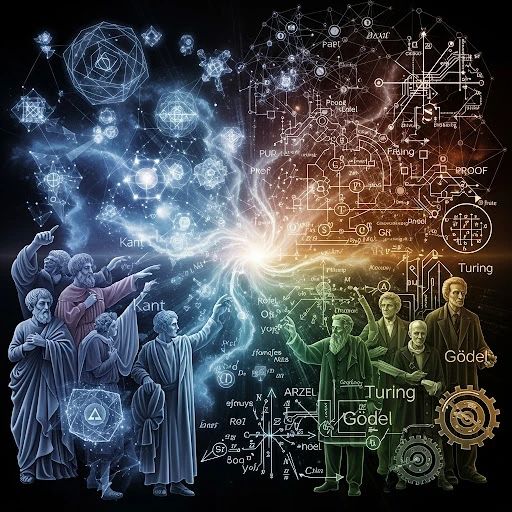
In the history of human thought, the exploration of logic and reason has followed a path from vagueness to precision. From the philosophical reasoning of ancient Greece to modern mathematical logic and computation theory, one of its core themes has been incompleteness.
Aristotle was the founder of scientific reasoning.
He proposed that science must obtain certain conclusions through deductive reasoning, while the starting point of deduction itself originates from inductive observation.
This cyclical relationship reveals the bidirectionality of knowledge generation: induction produces new premises, and deduction develops reasoning upon those premises.
Two thousand years later, Turing formalized this structure into two types of computational entities:
Through transfinite iteration, the two combine to form ordinal logic systems, enabling knowledge to extend beyond the limits of finite reasoning.
Kant further revealed the boundaries of reason in philosophy.
By distinguishing between the “thing-in-itself” and the “phenomenal world,” he pointed out that human reason inevitably encounters antinomies—questions whose answers will forever lie beyond the reach of reason.
In essence, this was the philosophical proposition of the incompleteness of reason, more than a century before Gödel’s mathematical theorem.
Gödel transformed Kant’s philosophical intuition into a rigorous mathematical proof.
He constructed self-referential propositions and proved: In any sufficiently complex and consistent formal system, there will always exist propositions that can neither be proved nor disproved.
This directly revealed the inherent incompleteness of formal systems, marking an insurmountable boundary in mathematics and logic.
From Aristotle’s deduction/induction logic, to Kant’s philosophy of antinomies, to Gödel’s incompleteness theorems and Turing’s ordinal logic systems, this line of thought reveals a single theme: Human knowledge systems will always dwell on the boundary between the finite and the infinite, the certain and the uncertain.
Each theoretical leap is a redefinition of this boundary.
We continually pursue absolute certainty, yet at the edges we always discover new unknowns—then draw them into our understanding through more precise language and models.